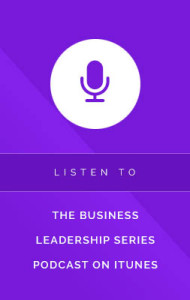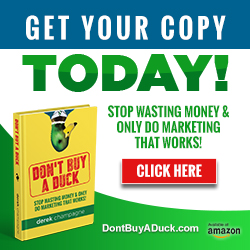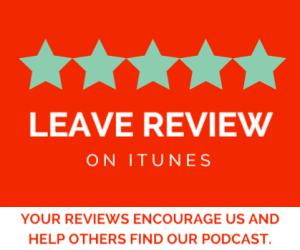Interview with John Wise, Shark Tank Veteran and COO of LovePop
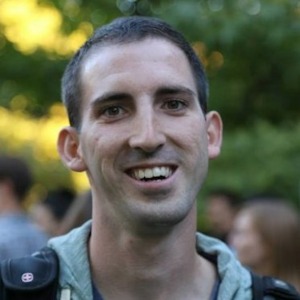
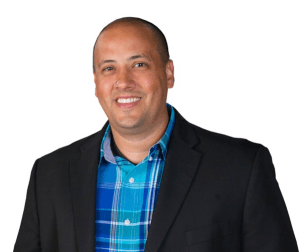 Derek Champagne, CEO of The Artist Evolution, interviews Shark Tank Veteran John Wise. John has an MBA from Harvard and is the Co Founder and COO of LovePop, a company that scored a deal with Mr. Wonderful on the TV show Shark Tank and is disrupting the greeting card industry.
Derek Champagne, CEO of The Artist Evolution, interviews Shark Tank Veteran John Wise. John has an MBA from Harvard and is the Co Founder and COO of LovePop, a company that scored a deal with Mr. Wonderful on the TV show Shark Tank and is disrupting the greeting card industry.
John talks with Derek about launching their Kickstarter campaign, having transparency and trust with your partners and team, how his network helped them to launch, and his experience before, during, and after Shark Tank.
Read the transcript below:
Derek: Welcome to the Business Leadership Series, where our goal is to inspire you to become the best leader that you can be. I’m your host, Derek Champagne, I’m really excited about our guest today. I saw him a year or so ago on Shark Tank. He’s got an amazing company that’s disrupting the greeting card industry. You’ve probably seen him on Shark Tank or Inc. Magazine or Boston Globe or any other major media that’s covering the things that his wonderful company’s doing. John Wise, the COO and Lovepop co-founder, welcome to the program today.
John: Thank you so much Derek. I’m really, really excited to chat with you all.
Derek: I really appreciate you – I remember when I first saw – and I’m sitting here and on my desk right now I’ve got the Willow Love Scene. I’ve got the card, we ordered it before this interview-
John: That’s amazing.
Derek: My team – we’re a creative agency here, my team just fell in love with it and I know that’s just one of many amazing designs. I remember when I first saw it on television, the first time, it was amazing to me that [you were] naval architects and with your background, then came up with this. So I’ve got to ask you: tell me a little bit about how you got started and just some early days and just any highlights you want to share that got you to where you are today.
John: It’s a really funny, kind of a crazy thing that naval architecture truly is relevant to creating these cards. We – so it really started with me and my co-founder Wombi. We had known each other for 10 years. We met in naval architecture school, so it’s been a very, very long friendship that evolved into being business partners. The style of card that we create is called sliceform kirigami. It’s not brand new, we are just the first ones using cutting edge software and equipment to make way more of it and way more intricate designs. We were fighting over using some of the cards we had found to other personal ‘thank you’ notes and we went back to Boston, started designing- I was just like tinkering and I had actually brought on some of my other naval architecture friends too.
And we were tinkering, designing these cards and people loved them. People thought they were just the coolest thing ever. We designed a ship that was actually designed by the founder of where we went to school. Valentine’s Day was coming, so we designed a heart, which is actually our original Lovepop card, which everyone loved. So it evolved into, “Okay, that was fun to make and people really like it. People are willing to buy them from us. Okay, I guess we’ll sell them”. And it started as an intricate or interesting kind of engineering challenge and fun business on the side.
Over time, we started creating more intricate, more elaborate sculptures and started seeing more people interact with the cards, we realized that we were actually getting out something very different, which is just like the human need to connect. We, over time, realized the value of the greeting card is real and substantial. Greeting cards have a place but over the last 50 years, the traditional greeting cards that you see on the rack haven’t changed at all. Yes, they introduced music, that was novel for a little while but it’s not as impactful as it could be. It’s not as impactful as what we were seeing when people were engaging with our cards – not engaging with our cards but using our cards to engage with others and with the people they care about. And so then, it was actually kind of, there is a definite shift in like, “Hey, this is a fun project” to like, “This is a real business and we’re doing something really cool with it”. There is like a double bottom line, there is a second reason for why we’re doing this, which is to give people a medium to connect with each other.
Derek: Tell me when it started to really take off and obviously you were on to something really cool. I guess you guys were travelling abroad and just fell in love with this concept and you were just doing it in a really cool way. When did you start to really see traction? When did you realize, “I think we’re onto something really big here, let’s take it to the next level”?
John: It took a while. So, we were selling out of our backpacks, then we were selling online, kind of in like a hobbyist way. We ran a kickstarter, which was really cool. We designed holiday cards and were like, “Okay, kickstarter people like it.” It was well received. Kickstarter was a really funny experience because we put all of this time and energy into kickstarter, had a successful outcome which was awesome. Kickstarter ended and then we were kind of left standing, like, “Uh, okay. So now what?” [laughs] Then it was like, “We sold all this stuff” and I was like, “How do we get further up there?”
We opened a retail location in South Station in Boston in February of 2015, just last year and that was also big – kind of the first turning point. When we saw the volume of people interacting with our products, they were excited about it and interested in purchasing it for engaging in their lives and frankly, looking at the sales numbers. We were like, “Hey, wow! Okay, this is really good work and this is really interesting and really cool.” That was like the first turning point. We grew in retail and the next turning point was Shark Tank. It was our appearance on Shark Tank and the ability to tell the country and the US who we are, what we’re about, what we’re doing.
Derek: We’ve interviewed guests on Shark Tank who did not get a deal, others who have and you did the impossible and then got, Kevin O’Leary, Mr. Wonderful, really excited and actually multiple Sharks but he had a great built-in distribution too, which is really exciting to me.
John: It is, yes. No, frankly, going in, he was not really on our radar. We were looking at the other Sharks, thinking how they could be really helpful but as soon as Kevin, in the Tank, started talking about Boston, started talking about weddings. It was just like – it pretty quickly became clear that he was the right partner and he is actually really fantastic.
Derek: What was it like for you in the Tank? Did you go in expecting to get a deal? Did you feel confident that you would or how did you feel going in?
John: [laughs] You have no idea; you really don’t know. I mean, we had some investor conversations and generally, they’re relatively casual, the stakes aren’t that high. You’re kind of exploring and there are other investors you can talk to if it doesn’t go very well but Shark Tank is a very different thing. It’s a very defined time, you have one opportunity and you are doing it in front of what will become the United States. So I think the level of stress and preparation and excitement, just is very different. But it’s awesome and we didn’t know; we were confident in our business, we were confident that it would be fine and we were excited we were going to share our story. Ultimately, it’s been really, really great.
Derek: What kind of Shark Tank effect did you experience after it aired?
John: Oh, we aired at a very fortunate time, which was right before the holidays and we happened to sell in a seasonal business, so it was very, very good for us. But then also, we got a lot of inbound that really kickstarted our wholesale program, which has been awesome. Then also, really kickstarted the building of our wedding products, which is what Kevin really invested in us for and decided about us doing what we’ve been working on and will be launching this year, which are doing customized wedding invitations with our Lovepop pop-ups. Which we’ve done a couple and they are really astounding, so we’re very, very excited to get that out.
Derek: That’s really cool; you’re a really sharp businessperson, sharp entrepreneur but you’re a smart cookie too. You’ve got a MBA from Harvard, how did that environment that you were in with school and with your contacts and your network; how did that help you in developing this business in the early start?
John: Yes, Harvard for me was a tremendous opportunity. I grew up in rural South Carolina, my parents were raft guides; now they run a small rafting operation in South Carolina. So going to Harvard was kind of a dream from a young age— to do something that would be really life changing. And when I was there, the cool thing is, there’s just a lot of people who’ve done a lot of really cool stuff and are really willing and able to help. I think that’s one of my – you’d asked me, you know prior, if I think there’s some advice I have and asking for help and asking for advice and seeking out people that have done this before has been one of the biggest things I’ve had to learn and realize and is tremendous – it has gotten us to where we are. Not in just Harvard but in any school environment, having the diversity of people, whether it be professors or staff and I think that doesn’t even have to be in schools either.
I think getting involved in your community and even us, being involved in the Boston startup community, there are so many people that have done what you are trying to do in kind of different ways. If you can find them and ask them for help, and it does go both ways, it’s also that you’ve got to give – give first and make sure you’re giving help where ever you can too. But leveraging people who’ve done this kind of thing before, you can grow and develop a lot faster. Like our community from school, our community from before school, our naval architect community and then the Boston startup community; all have played tremendous roles in how far we’ve come.
Derek: I love that and I’m seeing that more and more now and I really appreciate it. Me being a thickheaded entrepreneur in my early days, I kind of thought you had to protect your ideas and kind of do it all on your own and then showcase it when you succeeded. But I love this new cultivating of having consultants and having a great community around you and I’m seeing the very great success case studies like yours, that have leaned into their community. I really love that we’re not meant to be on an island, we are meant to lean into those who have done it better than us or who have paved the way and can share their resources and knowledge with us.
John: Without a doubt and then it is on you as someone who has figured it out, to share wherever you can and to help others and it will come back, it’ll pay dividends to be helpful.
Derek: So tell me a few other things you’ve learned along the way. I love that advice; what else just sticks out to you in your journey of these last couple years?
John: I think playing into this exact same conversation, I was thinking a lot about transparency and trust and how I have evolved as a manager and as a business leader. Getting to where we are now has taken tremendous transparency in ways that you don’t expect. There are so many temptations, whether it’s with your business partner, whether it’s with your investors, whether it’s with your customers or your team, to hide some bad news or hide something that you’re not quite sure about. It is bringing it out in the open immediately, just makes it not a thing. I think for me personally, that’s something that I had to learn and it’s gone a really, really long way. I think trust in others is similar, which is you’re being transparent, you’re trusting other people to be transparent in return and generally it works because you show a little bit of vulnerability and it actually can get you really far and get you a much better relationship with all of the different constituents that you’re trying to balance. And it isn’t just relating to business, but relationships on all fronts.
Derek: That’s great advice. Wow.
John: If you think about like, technically, what are you doing? You’re writing emails all day, that’s business leaders who are just cultivating relationships. The other thing I was thinking about – and one of the reasons, again, I’m getting personal. The reasons that I was excited about doing a business and what’s been most rewarding about building Lovepop, is creating a really great place to work. I think that our- your ability to build something great, to sell something great, to solve a big problem, really is dependent on bringing the team together around you. And that really is dependent on creating an amazing place to work, an amazing environment to work, where people are given the opportunity to learn and grow, are given real responsibility, are given the opportunity to laugh and have fun and build community within the workplace. I think we’ve been very, very fortunate to create somewhere that’s really special and cool to work and that’s been really awesome to see and also pay dividends in what we’re able to do.
Derek: Tell me how you deal with setbacks. How do you deal with challenges or what have you seen when you see a setback or a disappointment? What gets you through that? What helps you grow and learn from that?
John: One; realizing that it happens. Two; getting to the root cause, is actually really important and I think there is something mentally- if you have an issue, something happened, getting to understand why helps give you comfort that you can resolve it for the next time. So that’s something that is really big for us, is like, “Okay, this has happened. We’ll deal with it. How do we make sure it doesn’t happen again?” and then all of a sudden, it’s like, “Okay, yeah.” and you write it off to learning. Because at the end of the day, we are all learning. No one actually knows exactly what to do or when to do it and a lot of, I guess business, is making tough choices and you can’t not make a decision, so you have to accept and understand that you will make some wrong ones. It’s just a matter of figuring out and understanding why and where you went wrong so you can do better next time.
Derek: Great advice, John thank you. Let me ask you about balance and with the kind of schedule and with the kind of role that you have, how do you find a balance in life, to where you have that kind of holistic satisfaction us entrepreneurs can relate to? We find satisfaction in our work, we love it, it gets us up early but then as I’m growing older, we say, “Hey, we do have to have some balance.” And there’s family, there’s mental health and there’s your physical health. What do you do or advice to you have for having a balance in your life?
John: I think this is really a tough one. I think having a partner who’s supportive. I don’t necessarily agree with drawing boundaries but I do think you have to watch out for yourself. I do think not stressing about the 9 to 5 but making time for yourself, your family, whatever you need, kind of when you need it and thinking about, as entrepreneurs, there’s not really an option but to think about your job as your life and to figure out how you balance it but I don’t try to frame that. By taking it out of the 9 to 5 context, it actually makes it easier to kind of find that.
Derek: Yes, that’s an interesting take on it, I like that. So, tell me a little bit about The Possible Project.
John: Oh for sure. So The Possible Project is a really amazing organization that we have been fortunate enough to be involved with from the very beginning of Lovepop. When we started designing these cards, one of my first thoughts was, “Oh my God, how cool would it be to do this as a high school program where the art department could draw drawings and the engineering department, teachers and students could engineer these things and they’d come together and make this amazing product. Learning new software and new tools, technology like laser cutters.” Then literally, the program emailed me, The Possible Project, asking to come talk to their students, just about being an entrepreneur.
So The Possible Project is an after school program here in Cambridge that takes kids who wouldn’t necessarily go to college, wouldn’t necessarily have all the same opportunities as what could be available to other students and they lift them up through entrepreneurship education. So specifically they focus on making things and kind of maker skills. I went and I talked to them for this class, I actually got involved and we had a class of students that came after school and over the course of 12 months, designed and engineered their own Lovepop cards. Then we chose three of them that we felt were great, put them into our line. We’ve actually had three classes go through it and we have another batch of products that are coming out just in a few months that are student-designed products.
We also work with them on developing custom lines, so some of our custom projects that we do, actually we develop, engineer and design those and even go through the sales process with these students. If you think about how life changing it is for a student to say, “Yes, in high school and in this after school program, I closed five $2,000 deals.” Like that is a remarkable thing for a high schooler to be able to say and so that’s the kind of thing we’re working on with The Possible Project to do, is build a real business that provides a real value and service to businesses in the community but also allows students to be involved and to see how real businesses operate and to give them real life skills. That said, it’s been a really, really phenomenal partnership with them.
Derek: That’s exciting, thanks for sharing that. So I’ve got to ask you about the Donald Trump card because that one cracked me up.
[laughter]
Derek: I’m sure you’ve been asked about it a little bit but you guys discontinued that, right? How did that come about?
John: We made that very early- very, very early, when it still not really a thing. People were kind of feeling it out and we thought it was hysterical too. So we made a Donald Trump and actually at the time, Deez Nuts was another nominee in the Republican Party and so we actually made two cards and put them up against each other and we thought it was pretty fun.
Derek: That’s great. So any chance you’d bring them back? [laughs]
John: We’ll see, I mean – I think what we ultimately learned, is that well Donald Trump is pretty funny and resonates with some people. A unicorn and a willow tree is actually the type of card that people really want to buy. So we’ll see.
Derek: That makes sense [laughs], that’s probably a smart move. Hey John, anything else you want to share with us? Anything else that stands out that you can talk to our listeners about, that are maybe at a crossroads or developing a product or just launching in the marketplace. Anything else that jumps out in your mind that you want to share with us.
Johna; I think we really built a lot with very little. We are young and learning a tremendous amount, I would say, if you’re thinking about, start there’s not really a good opportunity to learn and develop and to try to build a business. I think when you are building a business or a new product, one of our biggest things is be careful of false positives. We’ve had both false positives and we’ve had false negatives. It’s a funny catch-22 because to build credibility and to get anything done, you have to sprint, you really have to move fast on very little information. At the same time, do make sure you understand where the information is coming from and know there are times when it is better to slow down and be a little more patient and we’ve seen the benefit of moving fast but we’ve also seen some of the pain from moving fast as well.
Derek: John thank you so much for sharing that. I really appreciate you being our guest today. I want to invite our listeners to learn more about your product by going to lovepopcards.com, they can learn more about some of your amazing designs, can order your products. Can even learn more about The Possible Project. thanks again for taking the time out of your day to share this with our listeners.
John: No problem, thank you so much, I really enjoyed it.
